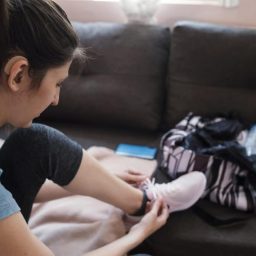Players of all levels find being part of a team enjoyable. But for those with hearing loss, it requires a little extra planning to be able to participate. Nevertheless, players with all degrees of hearing loss have found success and sports. And so can you.
Famous Deaf Athletes 
One of the first deaf athletes to become famous in the U.S. was Heather Whitestone. She won the Miss America pageant in 1995, wowing judges and audience members with her classical ballet routine en pointe. Even though she could not hear the music, she was able to count the beats in her head and match her dance moves to the music when she detected a change in pitch.
Heather used her win to launch a national campaign to raise awareness of the importance of early hearing loss detection.
Two deaf athletes competed for the U.S. in the 2008 Beijing Olympics – Chris Colwill was a diver, and Tamika Catchings played on the women’s basketball team. Deaf swimmer Marcus Titus was expected to compete at the 2012 Olympics before he narrowly missed a spot on the team by losing the 100-meter breaststroke by less than a second.
How to Participate in Sports
Regardless of your Olympian status, you too can participate in sports, even with hearing loss. It just takes a little planning.
Talk to Your Audiologist
Your audiologist carefully plans out your treatment plan based on a number of factors, including your activity level, aesthetic preferences and budget. Certain hearing aid styles work best for those who run around a gym while others are better for those exposed to the elements.
Make sure to tell your audiologist that you play sports during the hearing aid selection portion of your treatment to ensure they recommend the best model for your lifestyle.
Invest in Protective Gear
Playing sports exposes your hearing aids to added moisture from sweat as well as a greater chance of damage from falls. In order to keep your hearing aids working well, consider investing in protective gear. A dehumidifier can dry your hearing aid out, helping to prevent corrosion to the inner workings of the device.
A clip or other accessory to secure your hearing aid to your clothing can help protect your device from accidental falls.
Keep Everyone Informed
Choosing to play with or without your hearing aid is a personal choice. Whatever option you decide, make sure to let your teammates know. That way they can alert you if a whistle has been blown or a timeout has been called.
Hearing loss should never prevent you for doing what you love. Contact the experts at Albany ENT & Allergy Services to learn how to make sure your hearing loss doesn’t get in the way of your dreams.
